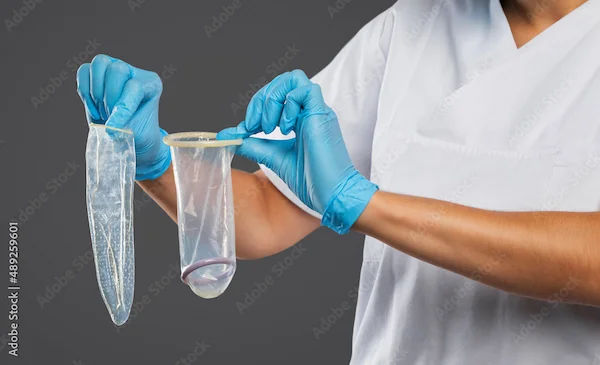Vitamin B3 Overview: Sources and Effects
Discover the benefits, sources, and effects of Vitamin B3 (niacin). Learn how it supports energy, skin, and brain health, plus tips to prevent deficiency and maintain optimal wellness.

Written by Dr. Rohinipriyanka Pondugula
Reviewed by Dr. Siri Nallapu MBBS
Last updated on 11th Aug, 2025

Introduction
Vitamins are essential nutrients that our bodies need to function properly, and Vitamin B3 (also known as niacin) is one of the most important ones. It plays a crucial role in converting food into energy, maintaining healthy skin, supporting brain function, and keeping our nervous system in good shape.
If you’ve ever wondered where to get Vitamin B3 from, how it benefits your health, or what happens if you don’t get enough, this article will guide you through everything in simple terms.
What is Vitamin B3 (Niacin)?
Vitamin B3 is a water-soluble vitamin, which means your body doesn’t store it—you need to consume it regularly through food or supplements. It comes in two main forms:
1. Nicotinic acid – Helps lower cholesterol and improve blood circulation.
2. Nicotinamide (niacinamide) – Supports skin health and reduces inflammation.
Both forms are important, and your body uses them in different ways.
Why Do We Need Vitamin B3?
Vitamin B3 is involved in many vital functions, including:
Energy Production – Helps convert carbohydrates, fats, and proteins into energy.
Healthy Skin – Keeps skin hydrated and may help with conditions like acne and eczema.
Brain Function – Supports memory and cognitive health.
Heart Health – Helps regulate cholesterol levels.
Digestive System – Aids in proper digestion and nutrient absorption.
Without enough Vitamin B3, your body may struggle with these functions, leading to health problems.
Sources of Vitamin B3
The good news is that Vitamin B3 is found in many common foods. Here are some of the best sources:
1. Animal-Based Sources
Chicken & Turkey (especially breast meat)
Salmon & Tuna (rich in niacin and omega-3s)
Beef & Pork (liver is particularly high in B3)
Eggs (a great option for vegetarians who eat eggs)
2. Plant-Based Sources
Peanuts & Peanut Butter (a tasty and easy snack)
Avocados (also packed with healthy fats)
Whole Grains (brown rice, whole wheat bread)
Mushrooms (especially Portobello and shiitake)
Green Peas & Lentils (good for vegetarians and vegans)
3. Fortified Foods
Some cereals, bread, and milk are enriched with extra niacin to help people meet their daily needs.
What Happens If You Don’t Get Enough Vitamin B3?
A severe deficiency of Vitamin B3 can lead to a condition called pellagra, which causes:
Skin rashes and dermatitis (red, flaky skin)
Digestive issues (diarrhoea, nausea)
Mental confusion or memory problems
Fatigue and weakness
While pellagra is rare in developed countries, mild deficiencies can still cause tiredness, poor concentration, and skin problems.
Can You Have Too Much Vitamin B3?
Yes! While Vitamin B3 is essential, taking too much (especially in supplement form) can cause side effects like:
Flushing (red, warm skin, sometimes with itching)
Liver damage (with very high doses)
Stomach pain and nausea
Most people get enough Vitamin B3 from food, but if you’re considering supplements, it’s best to consult a doctor first.
Who Might Need Extra Vitamin B3?
Some people are at higher risk of deficiency and may need more niacin:
People with poor diets (low in protein and whole grains)
Alcoholics (alcohol interferes with B3 absorption)
Those with digestive disorders (like Crohn’s disease)
Individuals with high cholesterol (under medical supervision)
If you fall into any of these categories, talk to your doctor about whether you need adjustments in your diet or supplements.
Tips to Get Enough Vitamin B3 Naturally
1. Eat a balanced diet – Include lean meats, fish, nuts, and whole grains.
2. Snack smartly – Peanuts, sunflower seeds, and avocados are great options.
3. Check food labels – Some fortified foods can help boost intake.
4. Limit alcohol – Excessive drinking can deplete Vitamin B3.
5. Cook wisely – Boiling foods can cause some B3 to leach into water, so try steaming or grilling.
When to See a Doctor?
If you experience symptoms like persistent fatigue, skin rashes, or digestive issues, it’s a good idea to get checked. A simple blood test can determine if you have a deficiency.
Health Topic Carousel:
Lab test: Vitamin B3 Test, Blood Test
Text: Get Access to your test.
At Apollo 24|7, you can easily book a consultation with a nutritionist or get a vitamin deficiency test to ensure you’re getting the right nutrients.
Book a test or consultation today – Stay healthy and energised!
Final Thoughts
Vitamin B3 is a powerhouse nutrient that keeps your energy levels up, your skin glowing, and your brain sharp. By eating a variety of niacin-rich foods, you can easily meet your daily needs without supplements.
Health Topic Carousel:
Doctor Speciality: General Practitioner
Text: Consult Top Specialist




